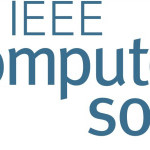- 업종: Computer; Software
- Number of terms: 50628
- Number of blossaries: 0
- Company Profile:
Founded in 1946, the IEEE Computer Society is a professional organization for computing professionals. Based in Washington, DC, it's the largest of IEEE’s 38 societies organized under the IEEE Technical Activities Board. The IEEE Computer Society is dedicated to advancing the theory, practice, and ...
A programming language that permits the construction of statements resembling algebraic expressions, such as Y = X + 5. For example, FORTRAN.
Industry:Computer; Software
A programming language that provides the structured program constructs, namely, singleentry-single-exit sequences, branches, and loops, and facilitates the development of structured programs.
Industry:Computer; Software
A programming language that requires little knowledge of the computer on which a program will run, can be translated into several different machine languages, allows symbolic naming of operations and addresses, provides features designed to facilitate expression of data structures and program logic, and usually results in several machine instructions for each program statement. Examples include Ada, COBOL, FORTRAN, ALGOL, PASCAL.
Industry:Computer; Software
A programming language used to express programs as a sequence of functions and function calls. Examples include LISP.
Industry:Computer; Software
A programming language used to express programs in terms of control constructs and a restricted predicate calculus; for example, PROLOG.
Industry:Computer; Software
A programming system that incorporates an authoring language.
Industry:Computer; Software
A programming technique in which loops are avoided by stating explicitly and in full all of the instructions that would be involved in the execution of each loop.
Industry:Computer; Software
A programming technique in which storage locations for computer instructions and data are chosen so that access time is minimized.
Industry:Computer; Software
A project plan for a software development project.
Industry:Computer; Software
A proof of correctness technique in which assertions are written describing program inputs, outputs, and intermediate conditions, a set of theorems is developed relating satisfaction of the input assertions to satisfaction of the output assertions, and the theorems are proved or disproved using proof by induction.
Industry:Computer; Software
